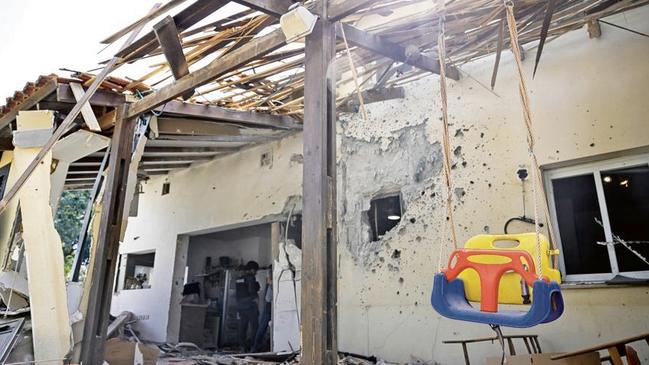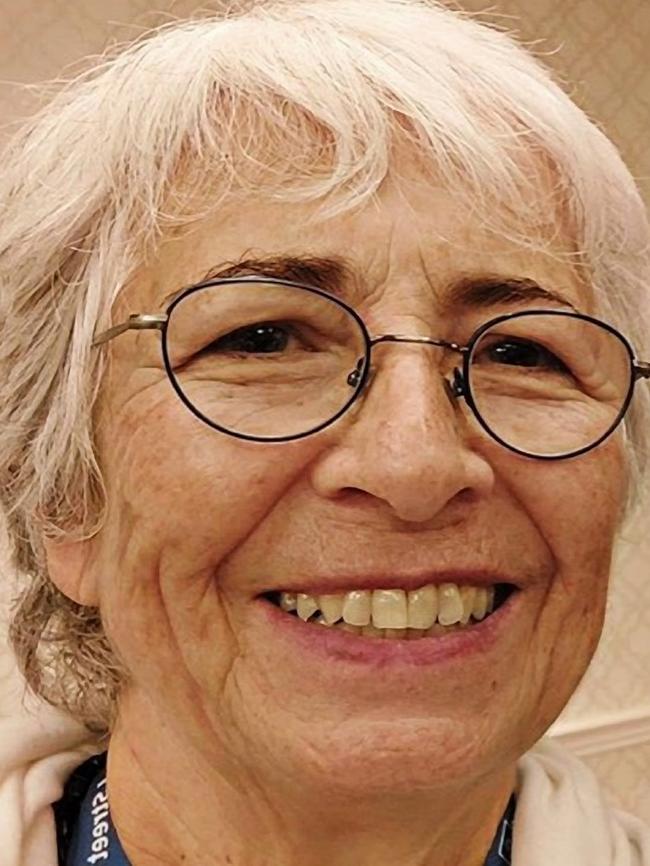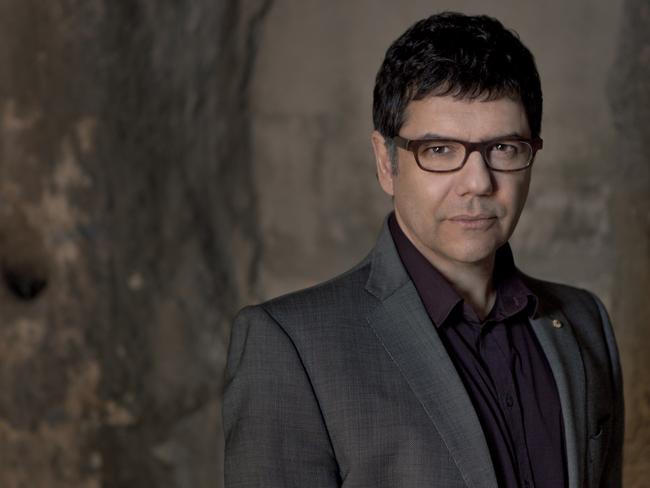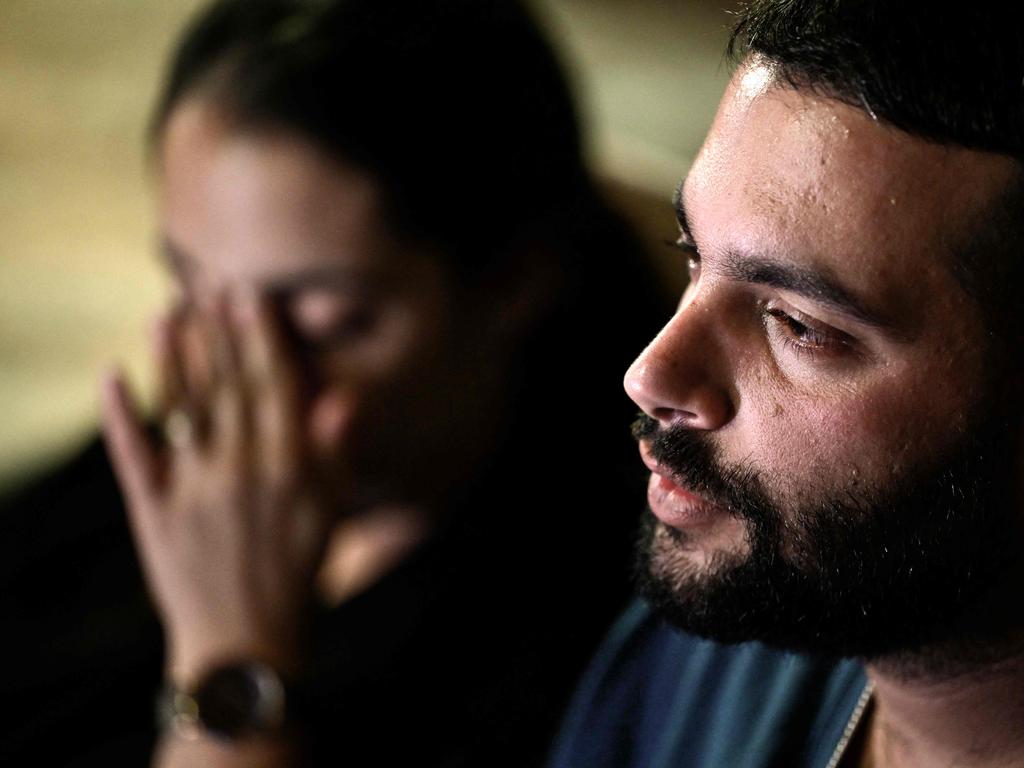Resilient people of Be’eri plan to restore life to their stricken streets
About 10 per cent of the people of the Be’eri kibbutz were murdered or kidnapped on October 7. Now a documentary tells their story.

The Hamas terrorists that arrived at the famous Be’eri kibbutz on the morning of October 7 last year appeared to know the village and its people well. Many Gazans were employed in Be’eri – about 5km from the border – and had for years worked in its fields and factories. Witnesses remember that the young Arabs sent to kill them went to certain houses to execute everyone there, knowing, it appeared, exactly who should be present. In at least one house they counted the dead and reckoned another young man was not among them. They searched each room and found him hiding upstairs where they murdered him.
One of those slaughtered that day was a Canadian-born Israeli Vivian Silver, perhaps the best known of the local volunteers working for the Road to Recovery charity in which mostly retired Israelis using their own cars pick up unwell young Gazans, usually with their mothers, to drive to a hospital in Jerusalem. And home again later. It’s a three-hour round trip for which they buy their own petrol that costs more than $3 a litre.
Silver was killed and her house burned to the ground. When they could not find her it was hoped that she had been kidnapped, but her remains were identified weeks later.

Those who lived in or who know Be’rei have been shocked by the savagery of the young Gazans who turned up that day. The locals are confident farmers who have conquered the area’s granite and sand and turned them green with years of backbreaking work and water management technology they shared with their Arab neighbours. Silver co-founded an organisation called Women Wage Peace that involved Arabs friends over the border.
Be’eri is an old and successful and while most kibbutzniks are socialist by definition, those in Be’eri are also the ultimate pacifists. Its occupants – but for one man with a pistol – were unarmed. Their attackers would surely have known this.
It is a few kilometres north of Re’im, the village at the northern end of the Negev desert outside which the Supernova music festival – billed as a time for “friends, love and infinite freedom” – took place. It coincided with the end of what is known as the festival of Sukkot.
It was well-advertised and the lure of 4000 young, unarmed Israelis dancing at dawn proved irresistible to the Hamas bosses in Gaza. The evidence of surviving witnesses, paramedics, and forensic professionals is that the savage sexual assaults were systematic and planned. Many young women and a few men were raped by the attackers, sometimes repeatedly, and often shot dead by their final assailant. There is evidence some were mutilated posthumously. Film has emerged of the young Gazans rifling through the pockets of their victims. Ironically, Gaza’s official currency is the Israeli shekel.
Hamas gunmen blocked all roads to the festival and killed anyone who tried to flee. Some festivalgoers drove off across the plantations, but they were gunned down too. But five of the Supernova youngsters escaped the festival site and ran the seven kilometres through the semi-arid scrub to Be’eri, not knowing that it also was under attack. As they jogged into the settlement, Hamas gunmen, probably about their age, shot them all dead.
Today, Be’eri is mostly silent – although distantly you can hear the echoes of war as Israel seeks to exterminate Hamas. Outside the houses in which entire families were wiped out is an unusual sight: sets of blackened patches on the road. As Hamas fighters revelled in the carnage inside, others set fire to the modest cars locals parked outside their homes. They have been towed away, but as the tyres burned and melted they left indelible reminders of what happened.
Melbourne businessman Albert Dadon chairs the Leadership Dialogue Institute which promotes discussions on issues of mutual interest between Australia, the UK and Israel to which he is a regular visitor. But his recent trip to the villages Foreign Minister Penny Wong would not visit, was different. With a small group, including Sky News presenter Andrew Bolt, he visited Be’eri and was shown around by Eyan Ben-Zvi, the director of the local printing works.

Ben-Zvi has lived in Be’eri his whole life and knew every one of its 1047 residents, 100 of whom were massacred or kidnapped last October. He walked the streets with Dadon describing each family and their losses and occasional stories of remarkable survival – even if most of these are tinged with tragedy. A third of the houses in Be’eri were destroyed and many residents incinerated with them, but mostly they were shot. Families hid in the safe rooms that are a feature of houses in the area, but these are designed for rocket and bomb attacks. The Hamas gunmen just shot them through the doors until the families fell silent.
The 70-year-old woman living next door to Ben-Zvi’s family was found shot dead in a bed in her safe room. He heard men speaking Arabic as gunmen approached his home. His family were in their “safe” room, but Ben-Zvi understood their vulnerability; he placed his kids, including a baby in a nappy, on each side of the room’s door and sat them down with iPads. They watched movies with earphones while the killers roamed around their home. Ben-Zvi held the safe room door handle shut for about 10 hours. At one stage his large dog, in the room with them, barked which panicked the Arabs who fled.
When the IDF arrived they found two young Gazan boys – unarmed, not soldiers – robbing the house. “The kids are fine,” Ben-Zvi tells Dadon of his family in a documentary Dadon has edited and that you can watch on YouTube. “(My children) have a quite a story. They kept cool. I don’t know how. God bless Netflix.”
Posters showing the faces of those killed in their homes are draped across their doorways. Many were killed as they shielded their young children. Those orphans of Be’eri are safe now, but must learn to cope – alone – with pointlessly upended lives.
Dadon spoke to a recent mayor of the village about the policy of being unarmed and asked if that would change. “We’re not doing that,” he said. “We do not have arms in his kibbutz. Full stop.”
Those who survived have shown extraordinary resilience – it’s an Israeli trait – and returned to work, in Ben-Zvi’s printworks and in the fields and factories. But no one can live there yet. They commute an average of three hours to their devastated village, and three hours home again.
And now Be’eri must decide on its future. Kibbutz boss Tomer Golan has already drawn up plans for 200 news houses, but will anyone return to those in which family members were brutally murdered? Should the devastation be preserved as a memorial so the world can witness it and say “never again”.
The trouble is that world has never again before. Hate for Jews may sometimes get drowsy, but it never falls to sleep.
Albert Dadon’s documentary is here:






To join the conversation, please log in. Don't have an account? Register
Join the conversation, you are commenting as Logout